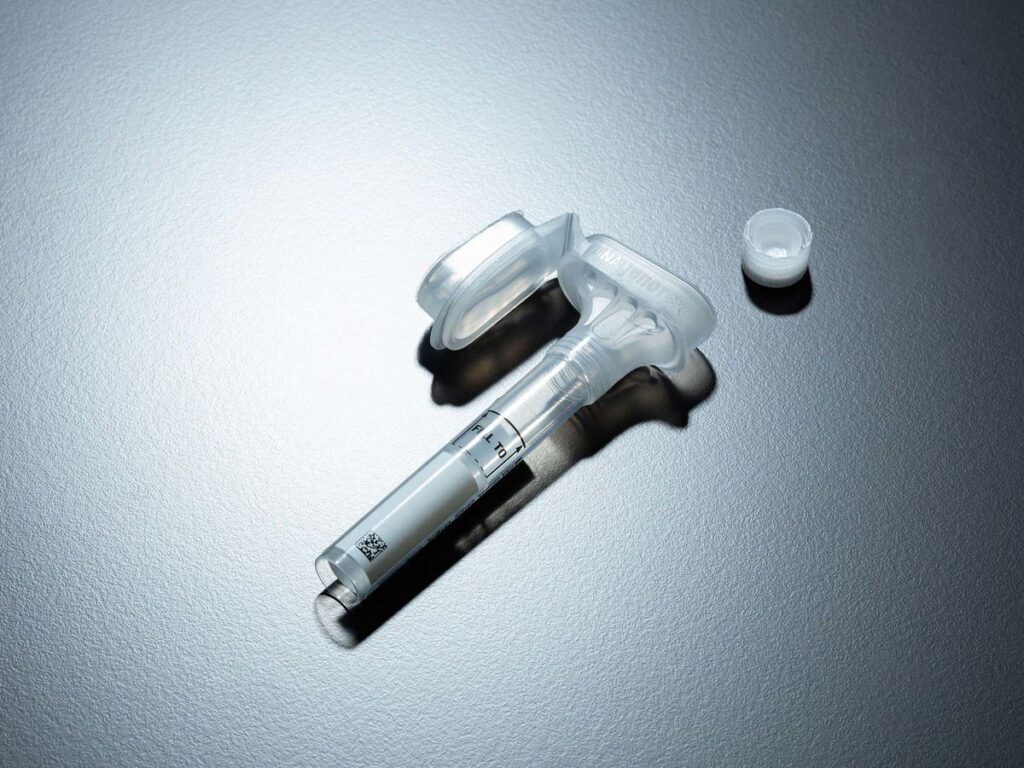Genetic Testing
Genetic testing with saliva or blood-based tests works by analyzing an individual’s DNA for germline mutations. These mutations are inherited and can provide information about an individual’s risk for certain genetic disorders or conditions.
Who should Test?
Testing for HLRCC should be considered for individuals with a personal or family history of skin leiomyoma(s), multiple uterine leiomyomas (uterine fibroids) or renal cell carcinoma, especially if diagnosed at a younger age. If a parent has HLRCC, their child has a 50% chance of inheriting the mutated gene and developing the condition, and genetic counseling can help individuals understand their risk and options for testing and management.

How To Order
To order genetic testing through a physician, an individual should make an appointment with a healthcare provider who can assess their medical history and determine if genetic testing is appropriate. For direct-to-consumer genetic testing, an individual can order a kit from a testing company, provide a sample of their saliva, and send it back to the company for analysis.
A genetic report is generated based on the results of genetic testing and provides information about an individual’s genetic makeup and any potential mutations or variants that may be present. A genetic counselor or physician can explain the significance of the results, provide information about the associated risks, and discuss any necessary medical management or surveillance.
Direct to consumer HLRCC testing
Invitae and Ambry Genetics are direct-to-consumer (DTC) genetic testing companies. Listed below are links to order genetic testing that can be sent to your home (for a fee) to determine if you or a family member may have HLRCC.
© 2023 All Rights Reserved.



